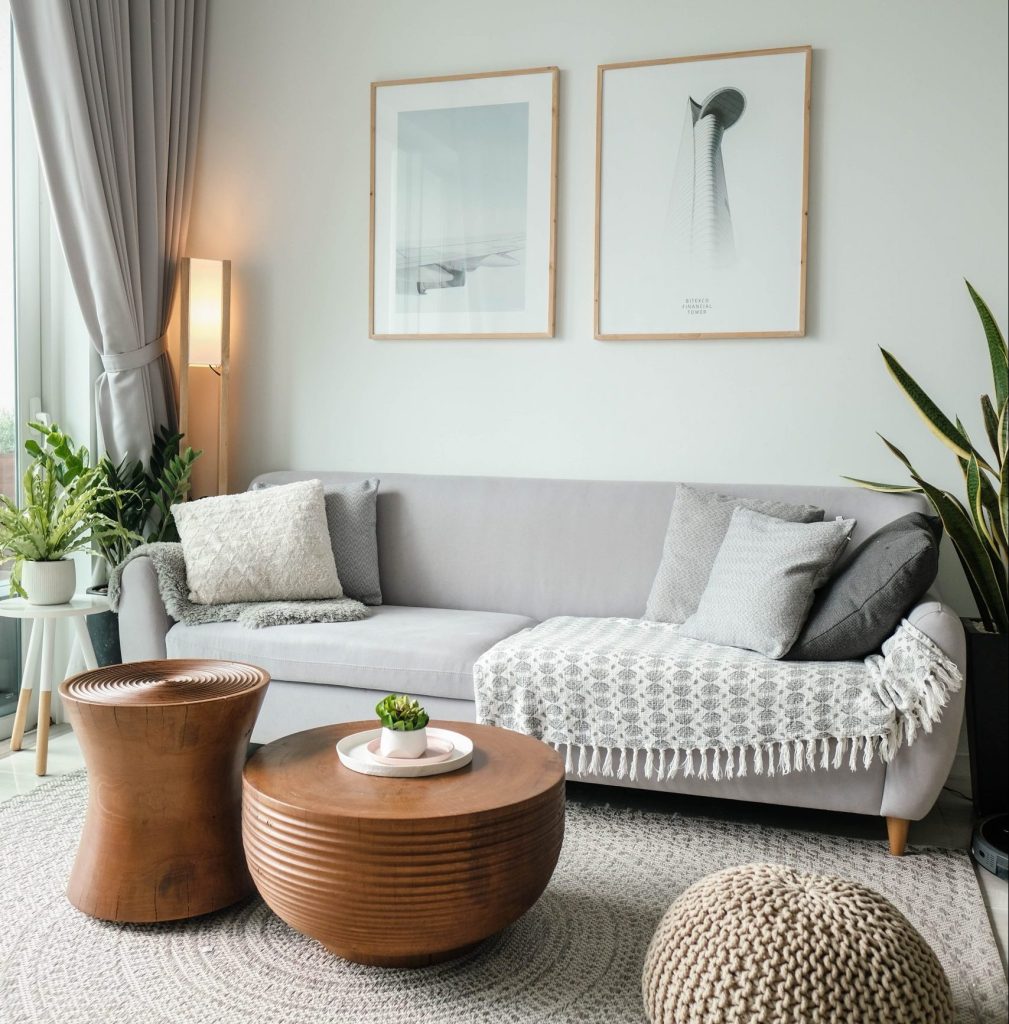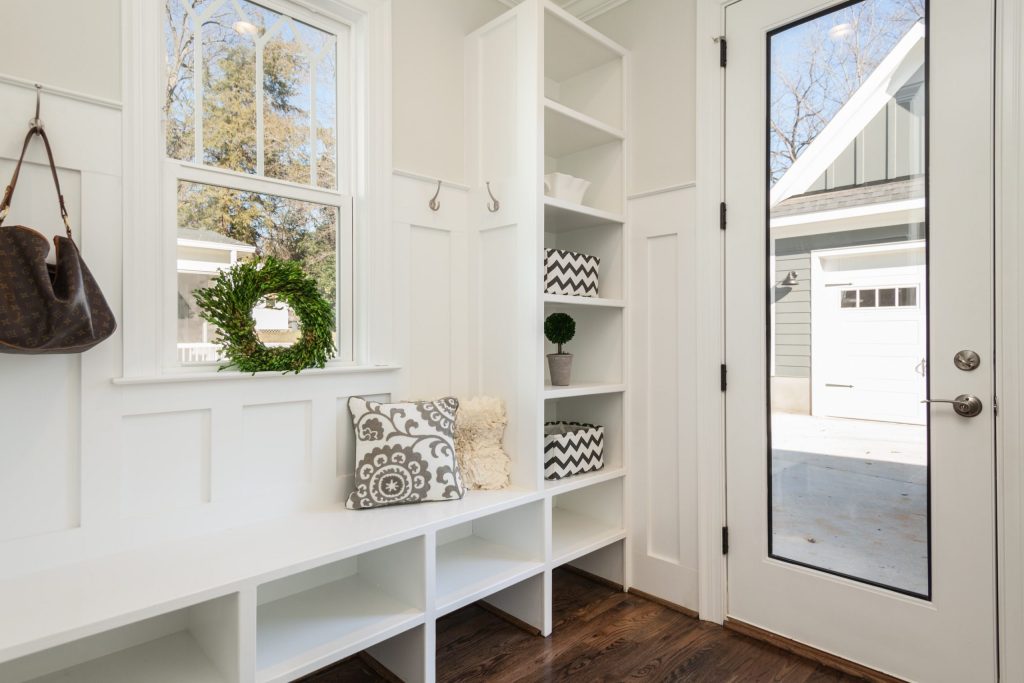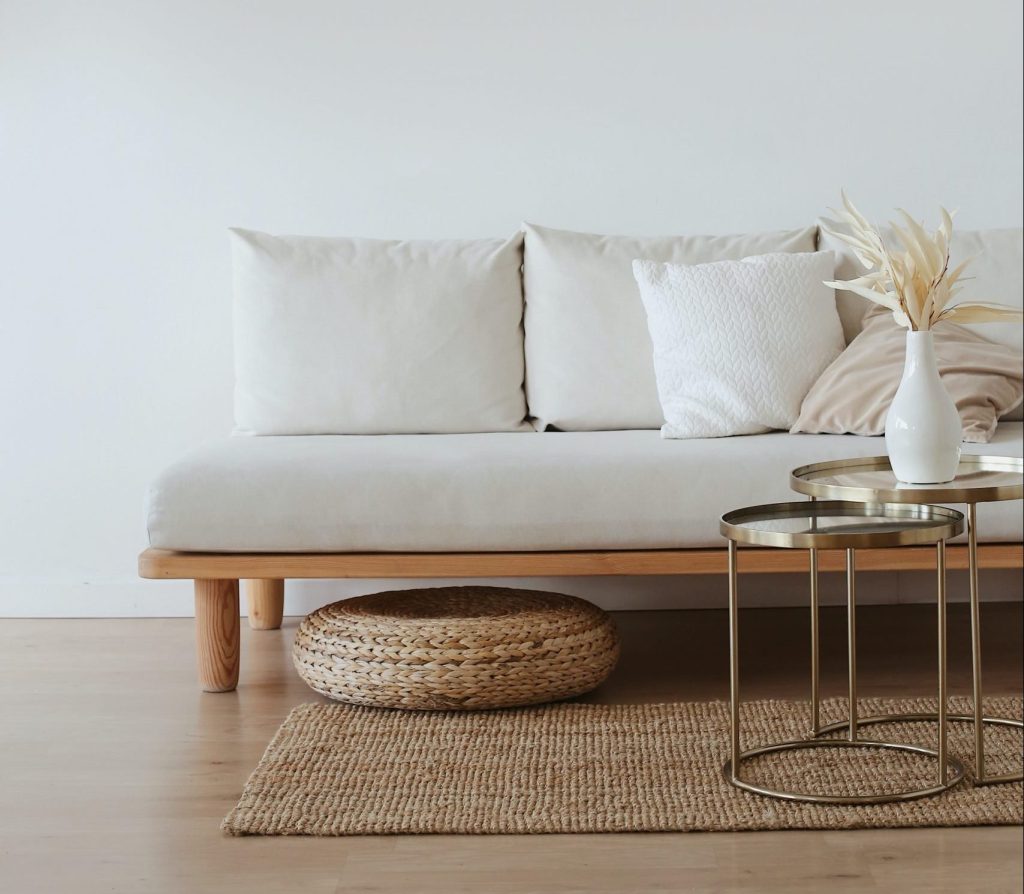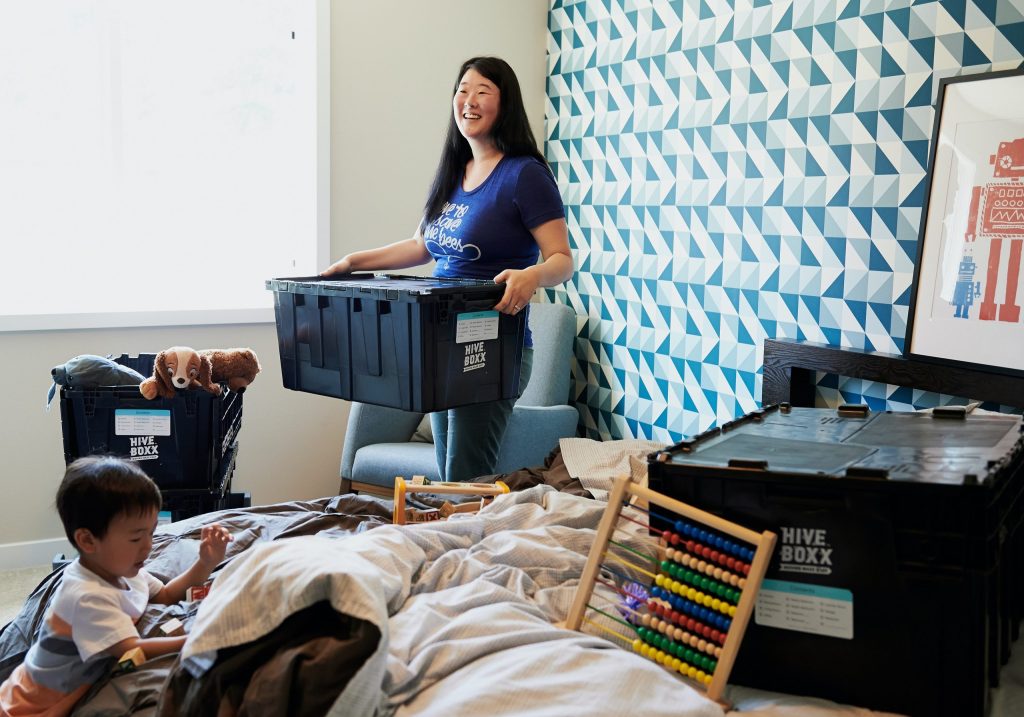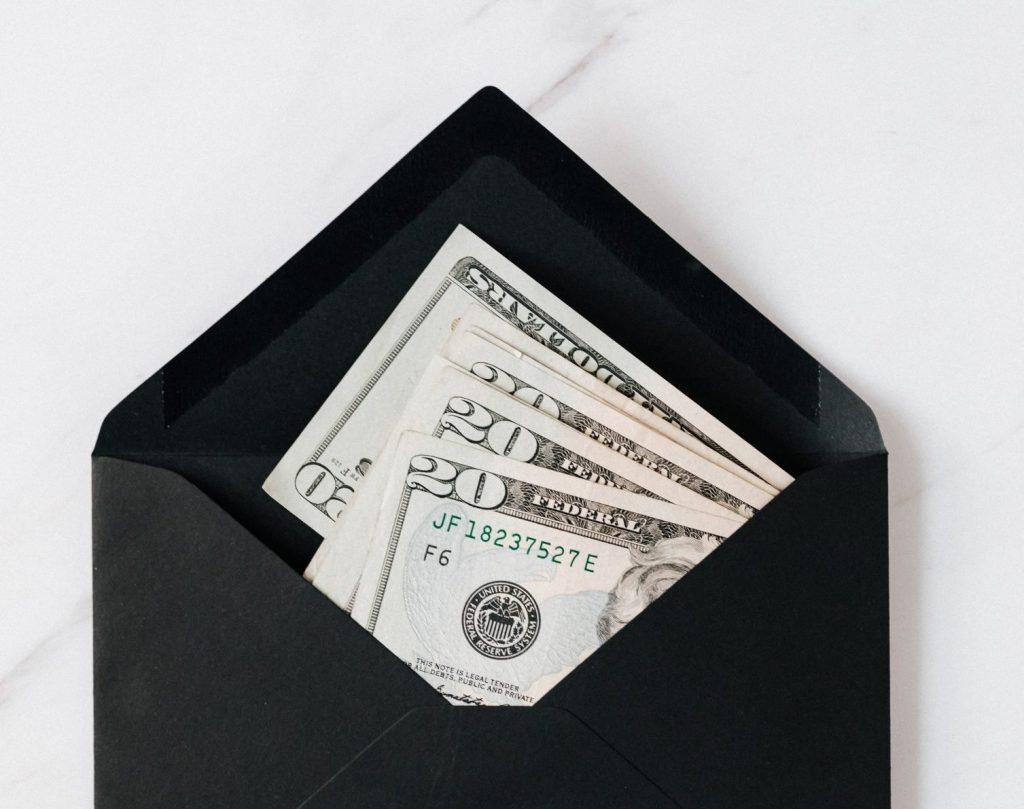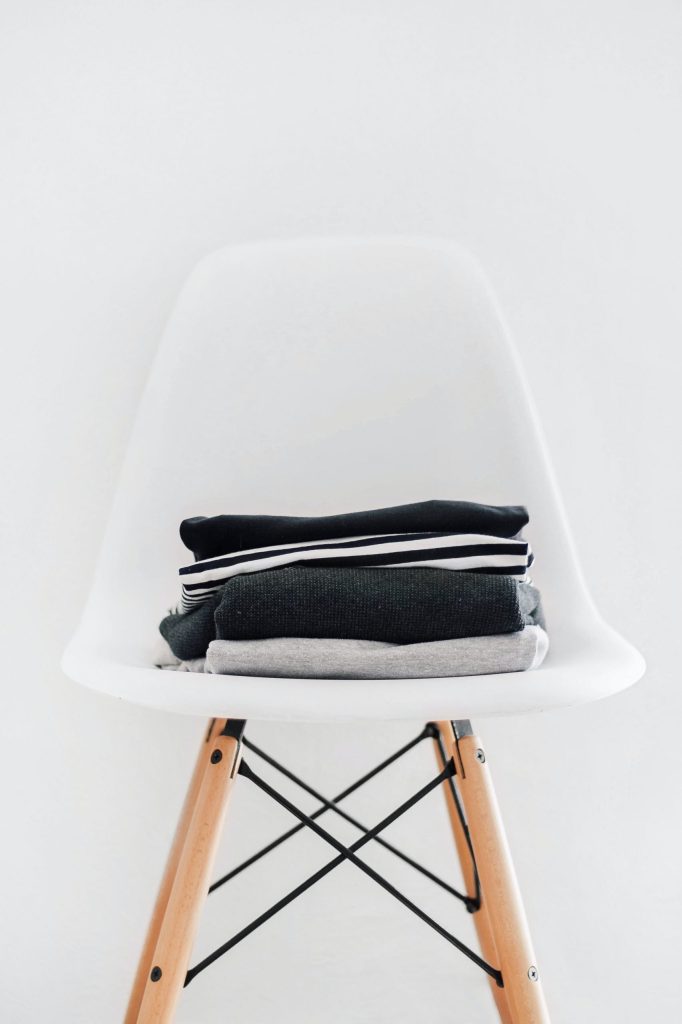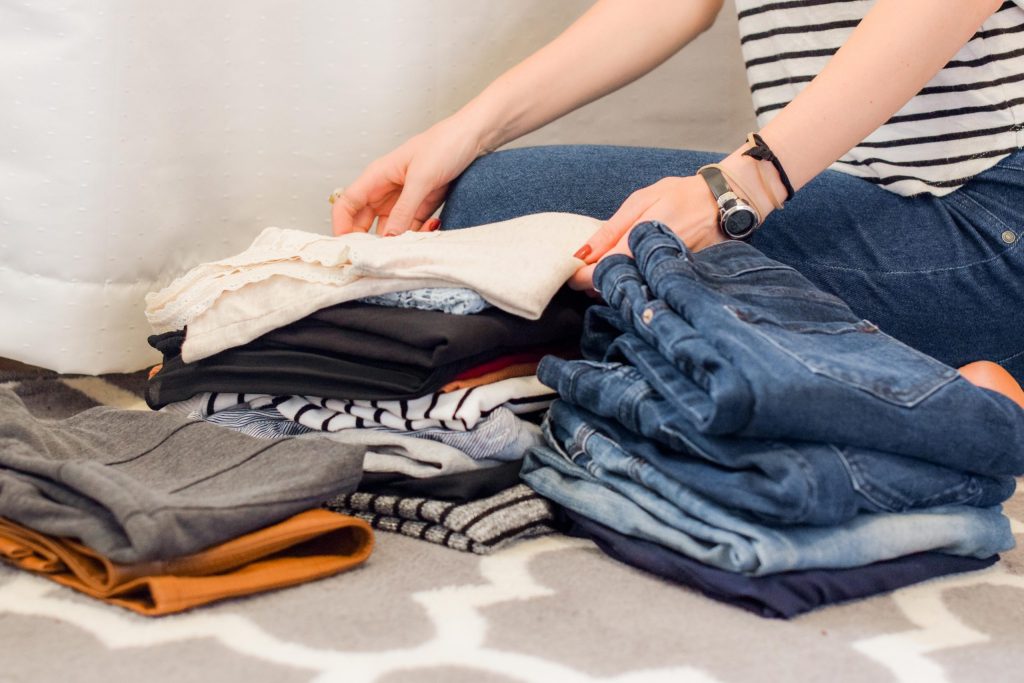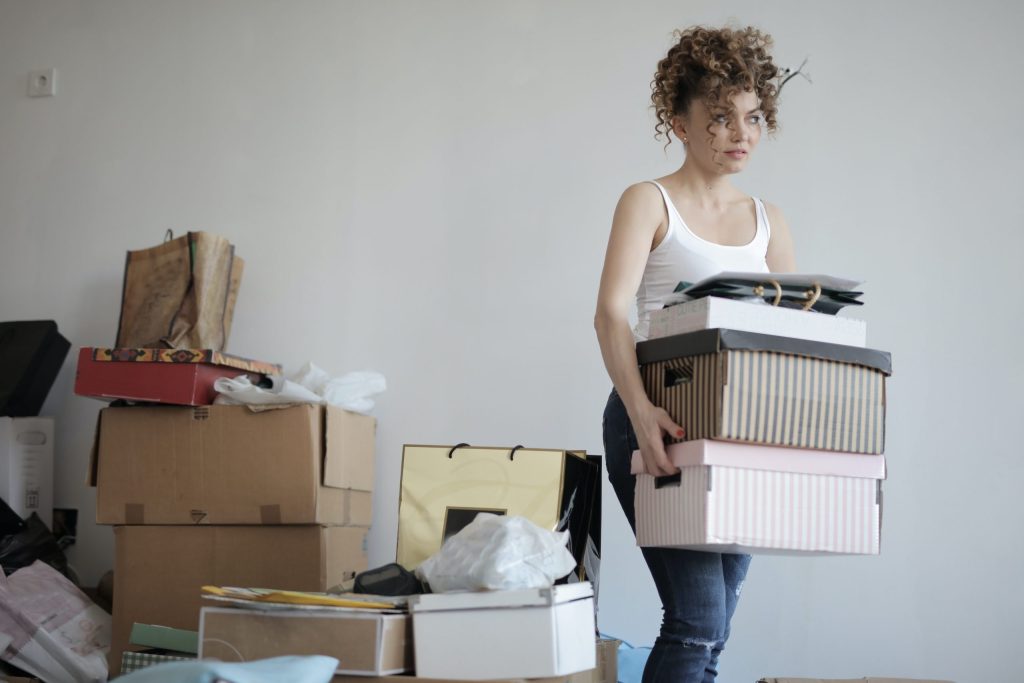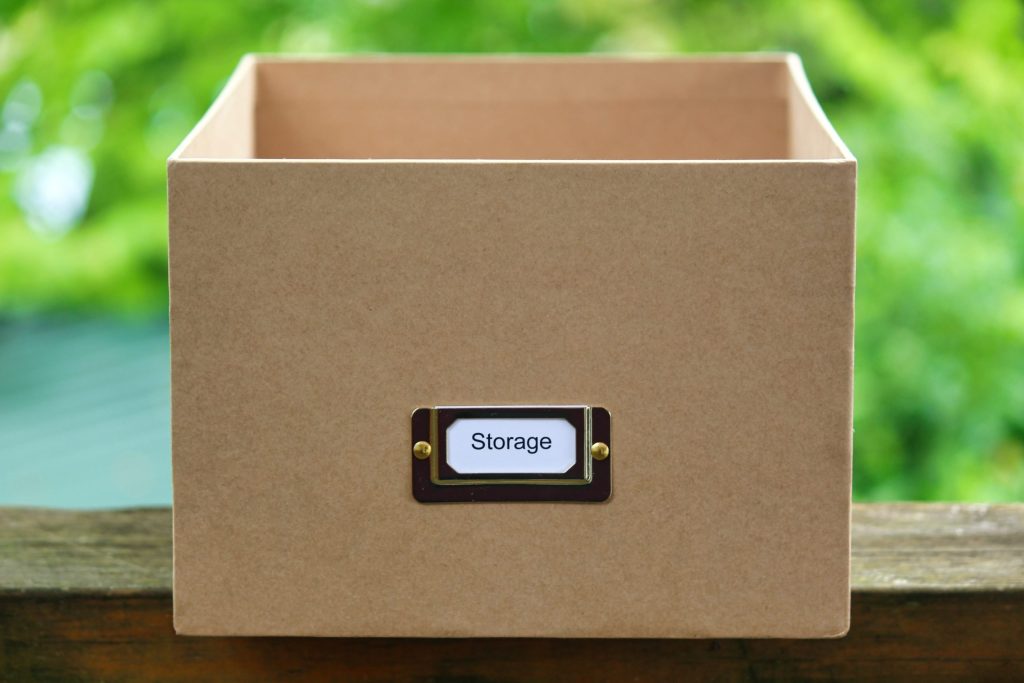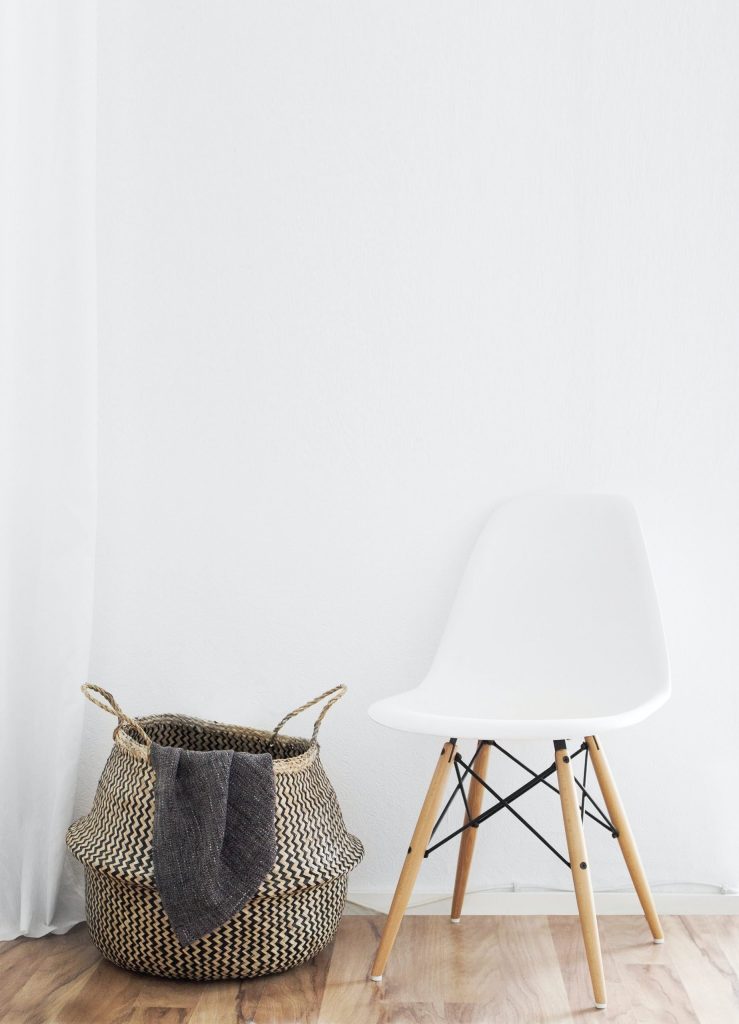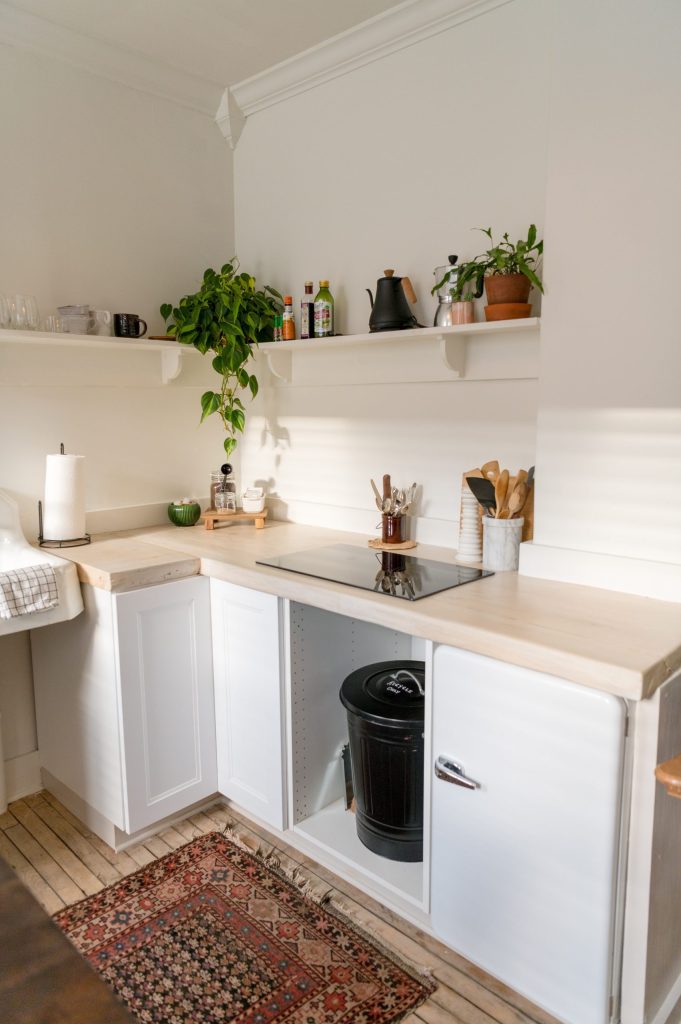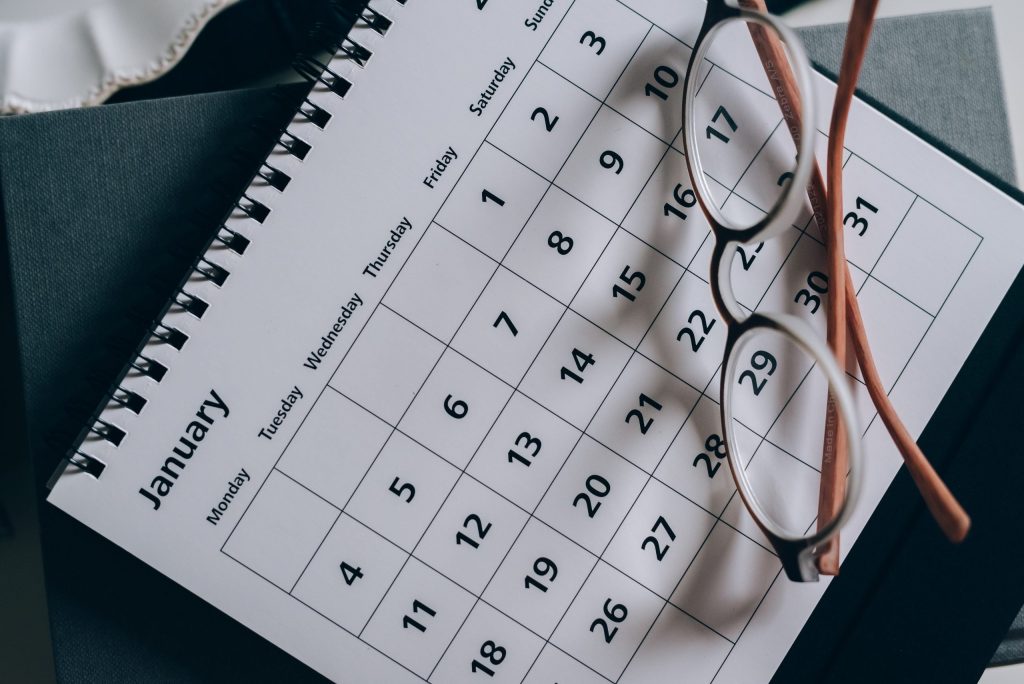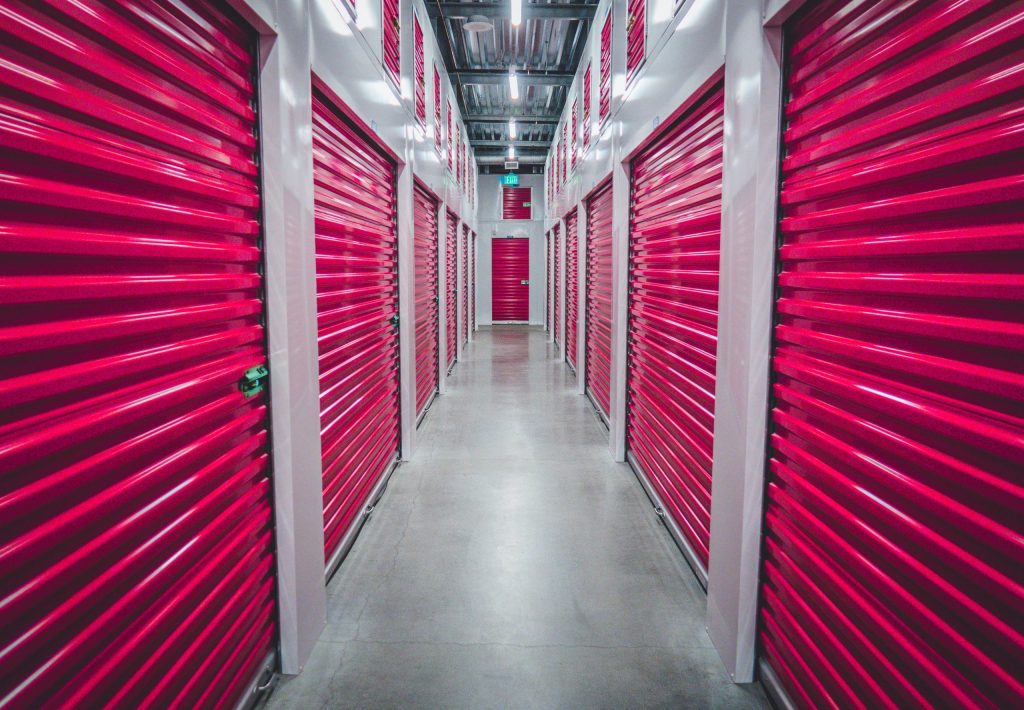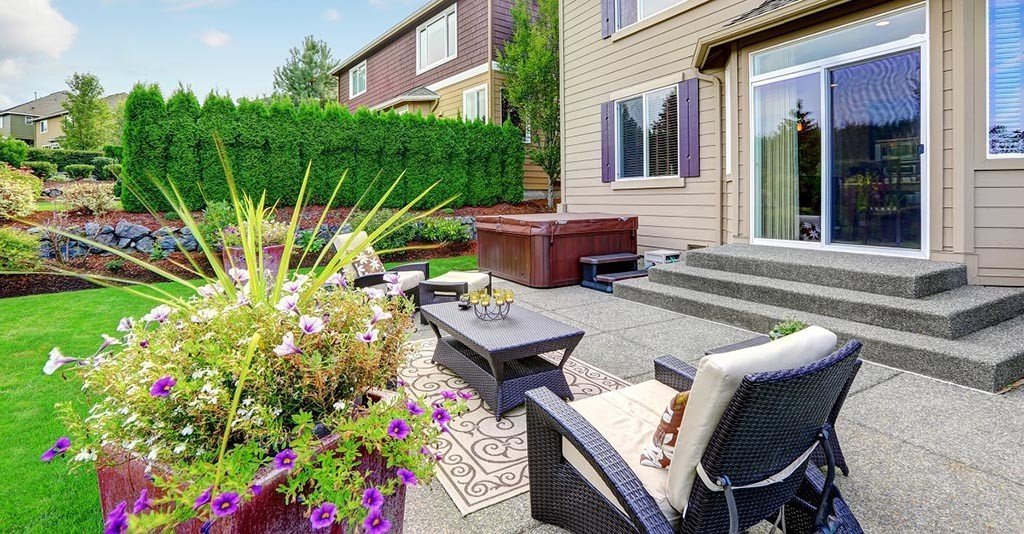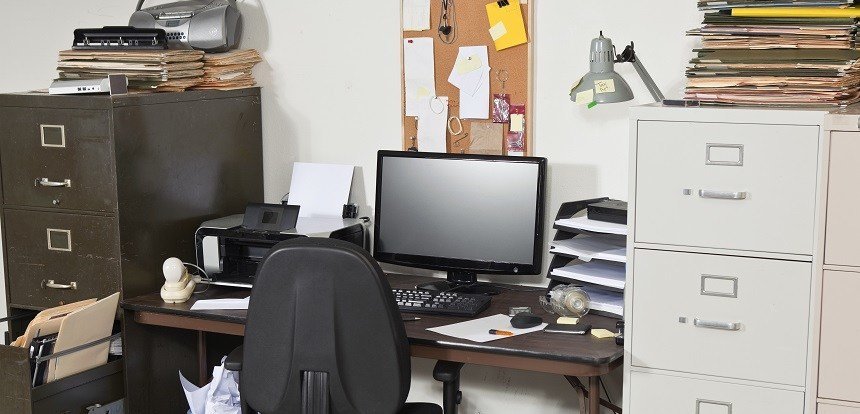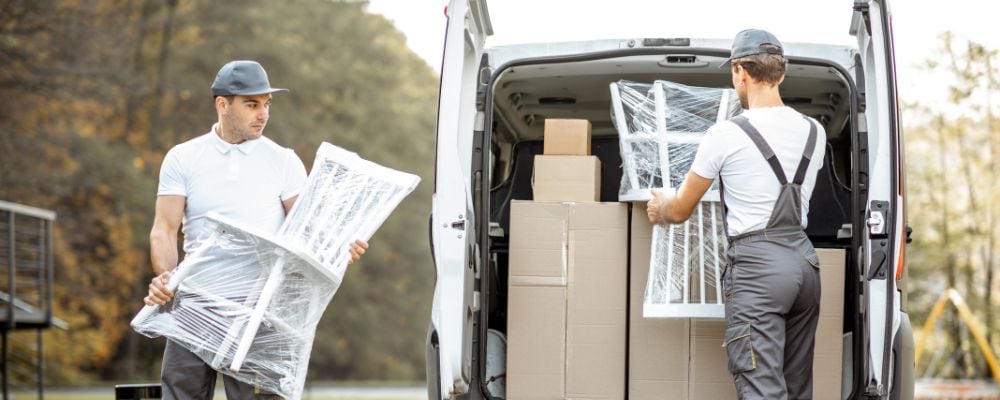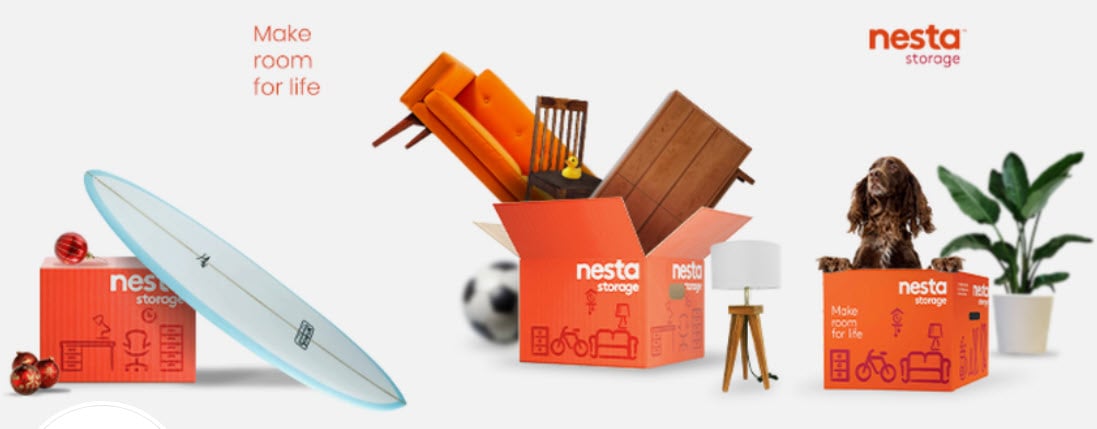7 Helpful Minimalist Decluttering Tips to Organise Your Home and Your Life
Table of Contents
- 7 Helpful Minimalist Decluttering Tips to Organise Your Home and Your Life
What is a minimalist lifestyle?- How to become a minimalist step-by-step?
- Start by asking yourself one question
- Be realistic and start small
- Give yourself guidelines
- Designate specific categories for your items
- 7 helpful minimalist decluttering tips
- 1. Take it one space at a time
- 2. Make an “in-between” space
- 3. Find a home for everything
- 4. Choose a catch-all spot
- 5. Use your vertical space
- 6. Arrange time on your calendar every few months
- 7. Designate a self-storage space for the things you want to keep
- Ready To Start Your Nesta Storage Journey?
A cluttered home does more harm to your mind and lifestyle than you might think.
It’s not just a bunch of “stuff” spread out everywhere. A mess can affect your stress levels, your decision-making, your energy levels, and even your wallet.
But if you’re struggling with a cluttered house, don’t worry. You’re not alone! There are so many out there that deal with the same problem.
That’s why we’ve put together the 7 most helpful minimalist home decluttering tips so you can organise your home and your life.
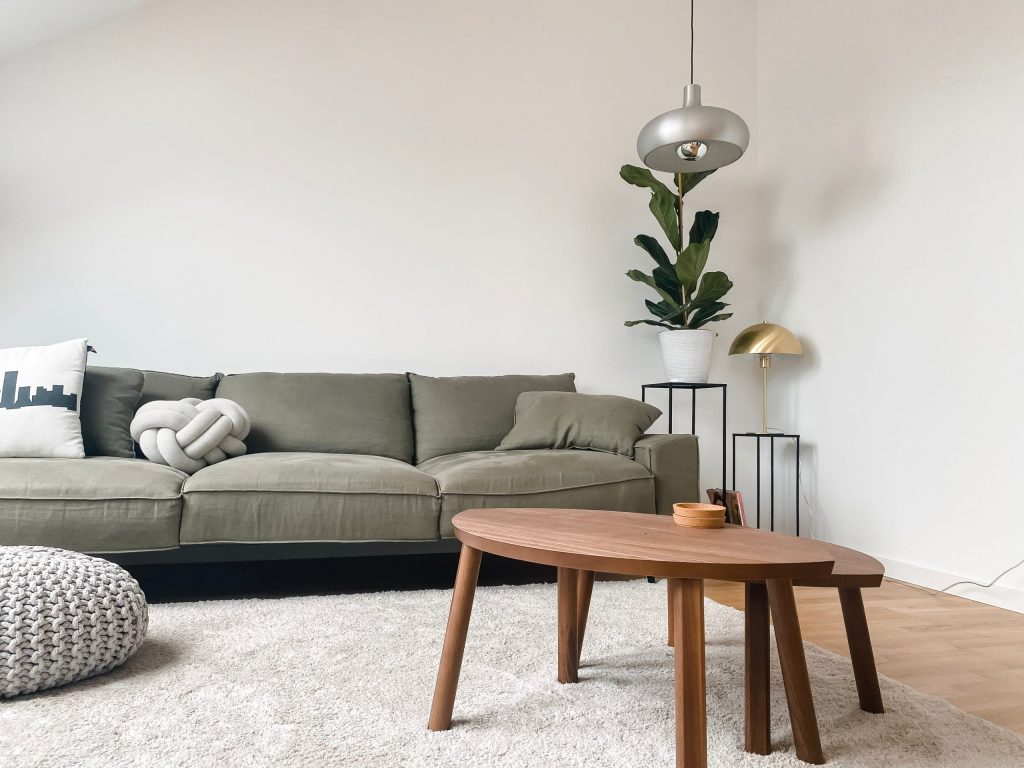
What is a minimalist lifestyle?
Minimalism has become a popular way of living over the last few years. A minimalist lifestyle is all about only keeping things that serve a purpose. It’s about keeping the excess or the clutter to a minimum.
It’s an intentional way of living. Instead of purchasing things just to have them, a minimalist lifestyle involves living life with greater purpose and fewer possessions.
But know that when it comes to living a minimalist life, it’s an ongoing journey. You probably won’t get the hang of it overnight, and that’s okay!
Take your time as you lean into decluttering your home and your life. And understand your motivators for wanting to lead a more minimalist lifestyle.
The benefits of decluttering your life
Living a minimalist life isn’t just a new trend that will come and go in a few years. There are actually plenty of benefits that come from decluttering your home and your life.
Here are the big ones:
Less stress
Clutter is more than just a distraction or an eyesore. It’s proven to lead to more stress in our lives. And in a world where we’re constantly overstimulated and overloaded, any more on our plates can lead to a decrease in our focus and productivity. Our brains are wired to seek out order.
So when our living spaces are filled with more clutter, it can cause irritability, shame, and even embarrassment.
Reducing the amount of clutter in your home means your stress levels can ease up!
Less to clean
We’ve already got a million things on our to-do lists.
But cleaning (or at least cleaning more) doesn’t have to be another one added.
When you’re living a decluttered, minimalist lifestyle, you have fewer possessions. The two align when it comes to value and purpose! So that automatically means less to pick up.
Fewer decisions
Do you know what else our brains (typically) don’t like? Having to make too many decisions. For many people, having to use energy to decide on choices can be overwhelming.
But a benefit of a minimalist lifestyle is that when you keep fewer things in your home, you have fewer things you have to decide what to do with. You don’t have to take time out of your day to figure out where to put what.
Save money
When you adopt a minimalist lifestyle, here’s one thing you’ll find: you have more money in your pocket. When you’re conscious about what you’re spending money on since you only want to bring things into your home that provide value and purpose.
Living a minimalist life means you essentially get a pay bonus!
More energy towards the things you truly care about
Without all of the clutter and stress, you can devote your time and energy towards things you truly care about.
Not to mention, with the money you save, you can put it towards things that matter to you. Invest more in your hobbies and experiences, rather than zapping up money and energy towards something you won’t want in a few short months.
How to become a minimalist step-by-step?
While the benefits of living a minimalist lifestyle all sound well and good, how do you get there?
After all, if you’ve never done it before, organising your home can be a daunting task. What needs to go where? And how do you decide what to throw away when decluttering?
We’ve taken the overwhelm out of the process by putting together a guide on how to become a minimalist step-by-step:
Start by asking yourself one question
To get started, you need to determine your biggest motivator. So ask yourself one simple question: “why will my life be better if I live a minimalist life?”
Do your values align with any of the reasons we listed above? If so, that’s fantastic! Keep that in mind as you’re working towards decluttering your home. Use your values and the purpose you’ve found to propel your minimalist lifestyle.
Be realistic and start small
It’s natural to feel overwhelmed when you look at everything you have to do as you declutter your home. Just know, that the entire process is a journey. It doesn’t have to be done overnight.
So be realistic. And give yourself small, actionable steps so you can get everything done in a timeline that works for you.
Give yourself guidelines
Like most others, you might have made it a habit to bring more clutter into your home just by spending money. So, to keep yourself from bringing in anything that doesn’t serve a purpose, give yourself boundaries. What are you willing to spend money on? Would it be helpful to participate in a “no-spend month” challenge? Find guidelines to help you stay aligned with your minimalist values.
Designate specific categories for your items
As you start to go through your things, cut down on the chaos by designating specific categories and piles for your items.
Here’s what we recommend:
For sale
In this category, pile up all of the items you’re ready to sell. This is a great way to also make some extra cash from things you no longer find purpose in. Just because you don’t find value in them any more doesn’t mean someone else won’t.
To donate
If you have things that are older or things you just don’t want to sell, make a donation pile. Someone will benefit from what you have to give away!
Rubbish
For things that don’t have any monetary or sentimental value, make a rubbish pile.
These can be old birthday or holiday cards that have stacked up over the years. Or it could be any items or toys that are broken and can’t be fixed.
Sentimental
Anything sentimental or valuable that you don’t want to part with can go in this pile. Think of things like photos of your kids when they were small, their drawings from school that you don’t want to let go of, or family heirlooms that have been passed down for generations.
To recycle
Anything that can be recycled will go to this pile. Don’t forget big things, too, like old computers or televisions that no longer work.
7 helpful minimalist decluttering tips
With your motivators in place and your categories set up, it’s time to start tackling the clutter in your home. Here are our 7 helpful minimalist decluttering tips to make this process as stress-free as possible!
1. Take it one space at a time
Don’t overwhelm yourself further by bouncing around from room to room. Designate one day a week to tackle one single room. That way you can work through the decluttering process in manageable chunks.
Reorganise the playroom
The first place you can take a look at? Your kids’ playroom. Chances are, there are old toys that aren’t played with any more but that are taking up space. You can reduce the clutter that makes its way out of the playroom by reorganising the playroom, too.
Plus, you can get your kids involved by having them choose what toys they want to give away to other children in need. And even with toys they still play with and want to keep, you can organise the area with playroom toy storage.
Sort through your wardrobe
Next, take on your wardrobe! Over time, we tend to accumulate more clothes than we need. As you go through your closet, take note of things you don’t wear any more or clothes that don’t bring excitement any more. If you’re not sure about certain items of clothing, ask yourself if you’ve worn them in the last year. If not, it’s probably a safe bet that it can go.
Those are ones you can set in your sale, donation, or recycle piles.
Clean out the washroom
It’s often overlooked, but the washroom ends up with lots of clutter! Take an afternoon to work through all of the products you have in the cupboards of your washroom. Figure out what’s outdated or what you don’t use anymore and find the right category for them.
Work through your fabrics and linens, too. Anything with holes, frays, or tears can be donated to local animal shelters!
Everything that’s still good to use can be organised with new bathroom storage ideas so you can still cut down on clutter!
Go through your pantry
Don’t forget about your pantry, too! It’s amazing the amount of clutter we accumulate in our kitchens alone. Sort through all of your canned and boxed goods and figure out what might be expired. For the things that aren’t expired, but you know you won’t use, donate them to shelters or food banks.
2. Make an “in-between” space
Sometimes, it’s hard to determine what you truly want to get rid of and what you want to keep. The line gets blurred. The best thing for that? Keep an “in-between” space. Create a designated spot for the items you come across that you’re not sure you’re ready to part with.
Give yourself a specific amount of time – whether it’s a week or even a month. Place your item in the space, and leave it. If you come back after your set amount of time without having thought of it, then you know you can part with it.
3. Find a home for everything
Part of a minimalist home interior means nothing’s out of place. Everything has its designated spot. So be sure to give every last thing a home. Use organisational boxes and bins to help with this! If an item doesn’t have a specific home, it’s probably clutter, and you can get rid of it.
4. Choose a catch-all spot
When you walk into your home, where does clutter tend to pile up? Is it right by the front door or on the kitchen table? Find a place that can work as a catch-all spot so small things aren’t just left out.
5. Use your vertical space
Don’t forget to use your wall space to place your items. You can always use pegboards and floating shelves to find homes for the items you want to keep.
6. Arrange time on your calendar every few months
Clutter naturally accumulates over time, even when you adopt this lifestyle. So one of our top minimalist decluttering tips is to set time on your calendar to sort through your items. Make sure everything still aligns with your purpose and values every few months.
7. Designate a self-storage space for the things you want to keep
There may be many things you want to keep but don’t have a place for inside your home. That’s okay! You don’t have to get rid of them. You can still keep things like sentimental items, seasonal items, or anything else you want to keep in a self-storage space. And the best part is you can find a self-storage space size that’s perfect for your needs.
Our minimalist decluttering tips will help you live a life that’s more purposeful for you. You don’t have to stay overwhelmed with the amount of stuff in your home. You can live a life that’s right-sized for you!
Ready to take the first step towards living a minimalist life? Start clearing out your home from things that don’t serve a purpose for you any more.
Get a quote for a convenient self-storage space near you!
Table of Contents
- 7 Helpful Minimalist Decluttering Tips to Organise Your Home and Your Life
What is a minimalist lifestyle?- How to become a minimalist step-by-step?
- Start by asking yourself one question
- Be realistic and start small
- Give yourself guidelines
- Designate specific categories for your items
- 7 helpful minimalist decluttering tips
- 1. Take it one space at a time
- 2. Make an “in-between” space
- 3. Find a home for everything
- 4. Choose a catch-all spot
- 5. Use your vertical space
- 6. Arrange time on your calendar every few months
- 7. Designate a self-storage space for the things you want to keep
- Ready To Start Your Nesta Storage Journey?
Related Posts
- February 10, 2026|1 min read
- January 22, 2026|1 min read
- January 8, 2026|1 min read
